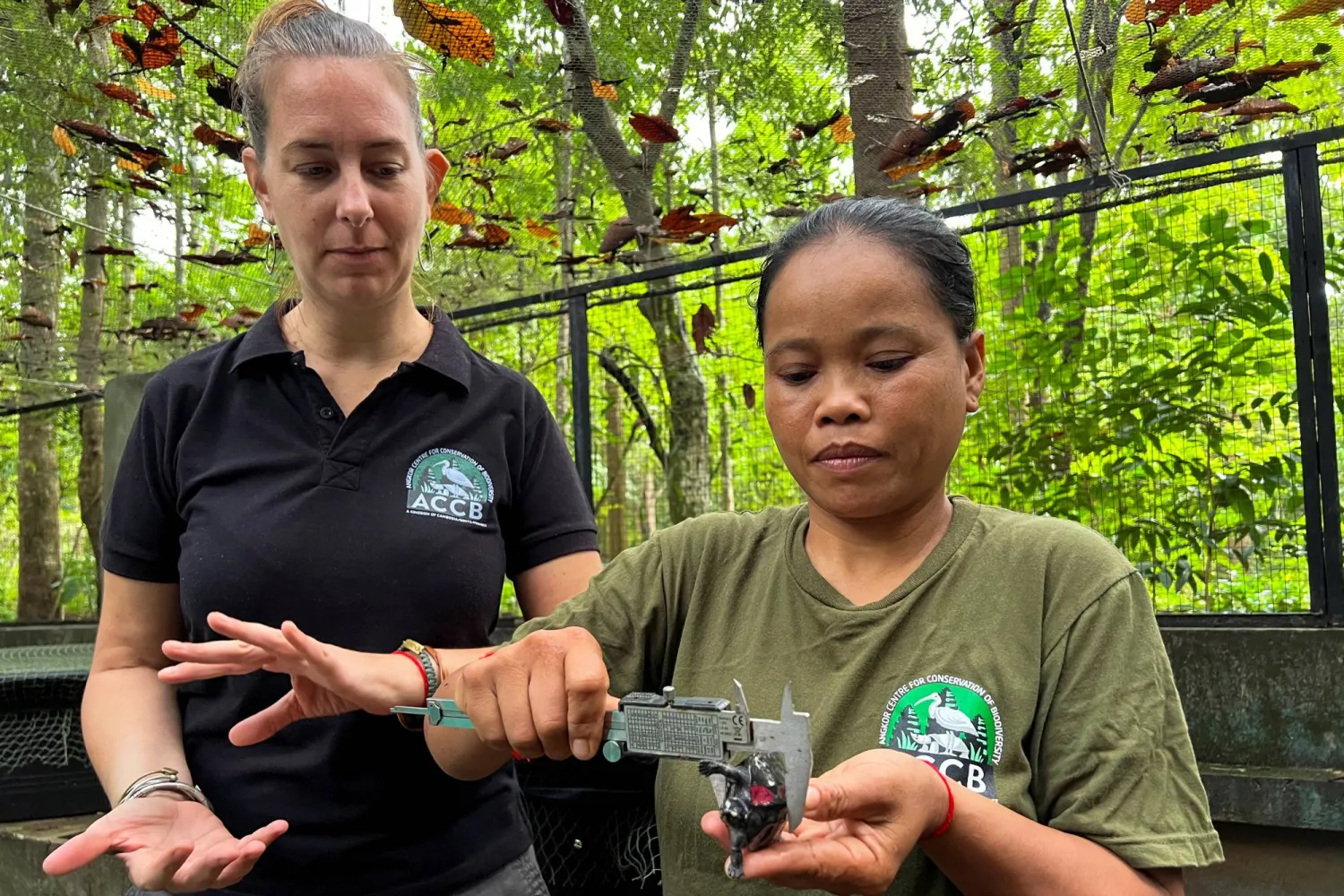The first Black Marsh Turtle hatched in captivity in Cambodia is being carefully nurtured by conservationists until it can be released back into the wild as part of a plan to rebuild the population of the endangered reptile.
The baby turtle hatched in late May at the Angkor Centre for Conservation of Biodiversity (ACCB), after its parents were rescued from the black market, Reuters reported.
The tiny reptile, just 6 cm long and weighing around 40 grams, is expected to stay in the sanctuary until it is big enough to be less vulnerable to its natural predators, ACCB country director Christel Griffioen said.
"Once we get there, and it might take four-to-six years, we will then look at re-introducing this individual, or bringing this animal back to the wild," Griffioen said.
At that point, she said she hopes that trackers can be used to follow the turtle to "learn more about the ecology of the species and our plans for long term re-introduction and recovering of the species in Cambodia.”
The Black Marsh Turtle, a freshwater reptile native to Southeast Asia, is listed as endangered by the International Union for Conservation of Nature (IUCN). Adults typically grow to around 17-20 cm.
The population is under threat from loss of habitat and the illegal wildlife trade, sought after for both its meat and for its shell, which is used in traditional medicines.
The ACCB, based in Siem Reap province, which is also home to the Angkor Wat temple complex, currently has six adult Black Marsh Turtles and also houses 29 other endangered species.
1st Hatchling in Captivity Offers Hope for Cambodia's Endangered Black Marsh Turtle

Turtle keeper Phorn Sreymom, 42, measures a baby Black Marsh Turtle, which was successfully hatched for the first time in Cambodia from turtles rescued from a black market seller, to check its health and growth at the Angkor Centre for Conservation of Biodiversity (ACCB), in Siem Reap province, Cambodia, July 16, 2024. REUTERS/Chantha Lach

1st Hatchling in Captivity Offers Hope for Cambodia's Endangered Black Marsh Turtle

Turtle keeper Phorn Sreymom, 42, measures a baby Black Marsh Turtle, which was successfully hatched for the first time in Cambodia from turtles rescued from a black market seller, to check its health and growth at the Angkor Centre for Conservation of Biodiversity (ACCB), in Siem Reap province, Cambodia, July 16, 2024. REUTERS/Chantha Lach
لم تشترك بعد
انشئ حساباً خاصاً بك لتحصل على أخبار مخصصة لك ولتتمتع بخاصية حفظ المقالات وتتلقى نشراتنا البريدية المتنوعة







